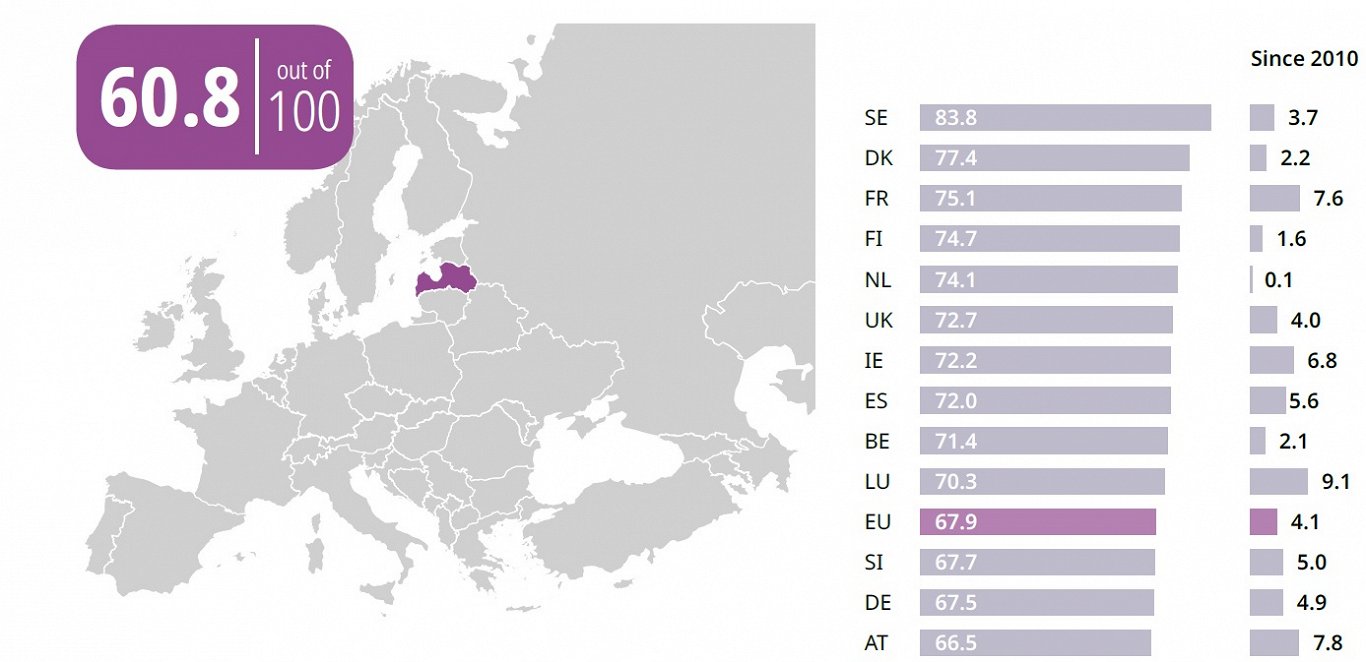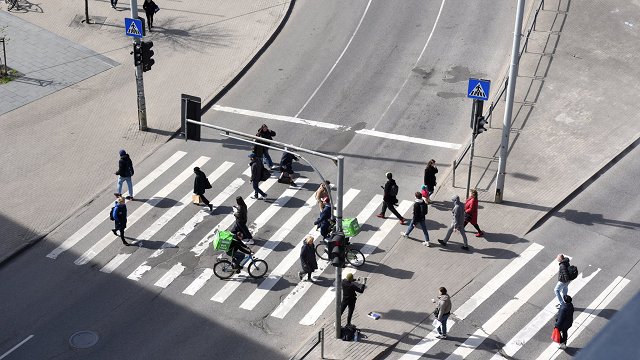With 60.8 out of 100 points, Latvia ranks 17th in the EU on the Gender Equality Index. Latvia’s score is 7.1 points lower than the EU’s average score.
Since 2010, its score has increased by 5.6 points. Latvia’s score has increased only slightly (by 1.1 points) since 2017. The country’s ranking has dropped by one place since 2010.
However, Latvia does at least rank slightly above its Baltic peers with Estonia in 18th place and Lithuania in 22nd place, and performs reasonably well in the area of healthcare.
"Latvia’s score is highest in the domain of health (78.4 points), although this is one of the lowest scores in the EU (ranking 26th). The second highest score is in the domain of work (74.0 points), in which Latvia ranks 12th," the report says.
Gender inequalities are most pronounced in the domains of knowledge (49.3 points) and money (65.2 points). In both domains, Latvia is among the lowest performing Member States (ranking 28th and 26th, respectively).
With a score of 67.9 out of 100, the EU is at least 60 years away from reaching complete gender equality, the EIGE said. The latest Gender Equality Index shows that the EU is improving by just half a point each year.
Among the Member States, Sweden, Denmark and France keep their top spots. The awards for most improved go to Italy, Luxembourg and Malta, with each gaining around 10 points since 2010. Greece, Hungary and Romania are lagging behind the rest.
“We have seen small, steady gains year on year but this time we have a reason for concern. The coronavirus pandemic poses a serious threat to gender equality progress, which we cannot afford. More than ever, policymakers will need to use the results of our Index to design inclusive solutions that promote gender equality in our society, both during and after the pandemic,” said Carlien Scheele, EIGE’s director.
The data for 2020 Index is mostly from 2018. You can explore the data in detail at the dedicated website which also offers a novel online game based on gender opportunities in different countries. We have atached a factsheet summarising the Latvian data to this story in PDF format.





























